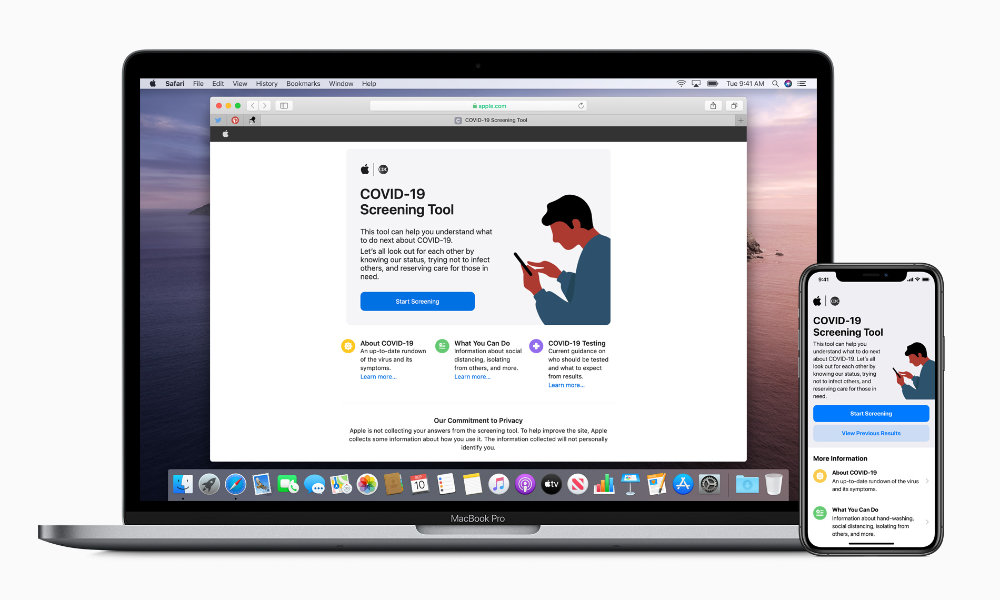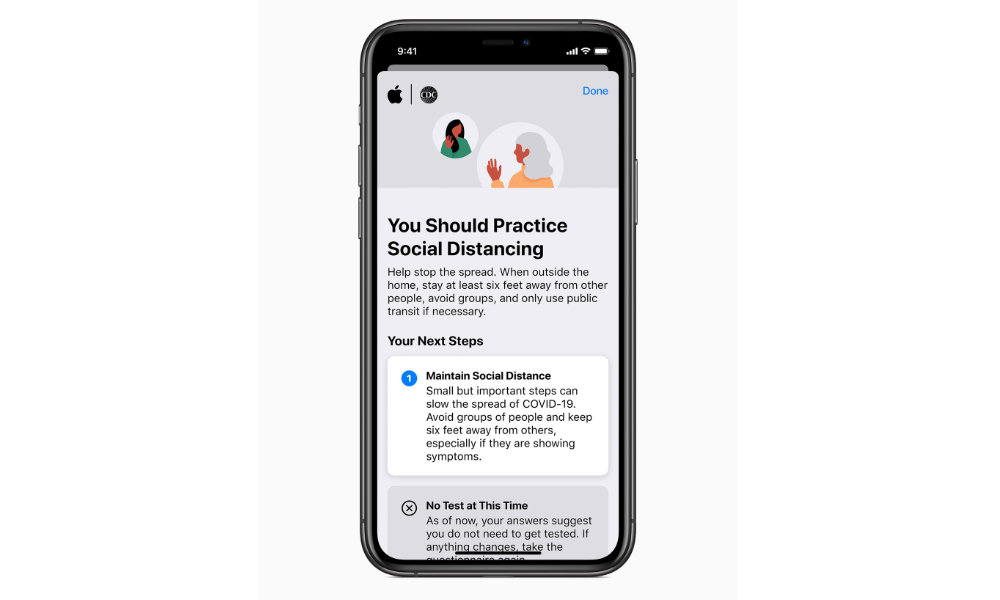Apple Releases Its Own COVID-19 App in Partnership with the CDC
 Credit: Apple
Credit: Apple
Toggle Dark Mode
In a new and unprecedented move, Apple has just announced the release of its own first-party app for screening and tracking the spread of COVID-19, along with a companion website that offers similar services to those found in the app.
The new app, named simply Apple COVID-19 is available on the App Store as a free download, and Apple notes that it was created in partnership with various trusted organizations such as the CDC in order to ensure that Apple device owners can get timely and accurate information as the U.S. deals with the novel coronavirus pandemic.
Created in partnership with the CDC,1 the Coronavirus Task Force and FEMA to make it easy for people across the country to get trusted information and guidance at a time when the US is feeling the heavy burden of COVID-19.
The move by Apple undoubtedly comes in response to the rapidly increasing number of new COVID-19 cases being reported across the United States, and at this point appears to be available solely in the U.S. App Store.
According to Apple’s new press release, the COVID-19 app and website will provide self-asessement questions to let people determine the next steps if they think that they may have been exposed to the novel coronavirus, as well as providing official CDC recommendations on things like social distancing, self-isolating, and monitoring symptoms.
Like most self-assessment tools, however, Apple makes it clear that it’s not intended to be a substitute for speaking with an actual healthcare provider or following the instructions provided by local authorities.
This new screening tool is designed to be a resource for individuals and does not replace instructions from healthcare providers or guidance from state and local health authorities.
In addition to a self-assessment tool, the app will also provide a number of informational and educational resources, such as a FAQ about COVID-19, along with CDC best practices for things like hand-washing and disinfecting surfaces.
The new Apple COVID-19 app adds to other tools that Apple has already been putting in place, including the ability to ask Siri to help with self-assessment, and a curated collection of telehealth apps on the App Store. Apple also notes that it’s begun using its push notification system to send out notifications to the iPhones of travellers landing at certain international airports to remind them to stay home and monitor their health.
A few weeks ago, Apple began policing the App Store for COVID-19 apps, blocking any that didn’t come from recognized medical or government organizations, explaining that it was important that all apps on the subject be guaranteed to be “credible news sources” and therefore must come from “recognized entities such as government organizations, health-focused NGOs, companies deeply credentialed in health issues, and medical or educational institutions.”
While Apple’s own COVID-19 app may seem to fly in the face of its own policy, since Apple itself isn’t exactly a government or health organization, its years of focus incorporating health features into iOS could make the argument that it is “deeply credentialed in health issues.”
Many other local governments and organizations such as the CDC already have their own COVID-19 related apps available, although Apple is clearly angling to provide an app that is at least national in scope for users in the U.S. A recent report by 9to5Google reveals that the World Health Organization (WHO) is also in the process of preparing to release its own app, and Engadget also reports that The Weather Channel is set to begin offering localized COVID-19 updates through its existing apps, including AI-powered “Incident Maps” that will show stats like confirmed cases by state and county. Earlier this week the government of Singapore also open-sourced its COVID-19 contact tracing app so that other governments and healthcare providers can begin leveraging that technology.







